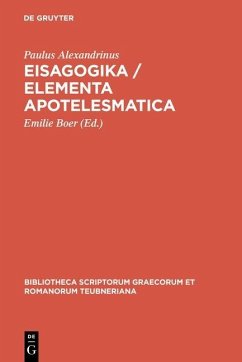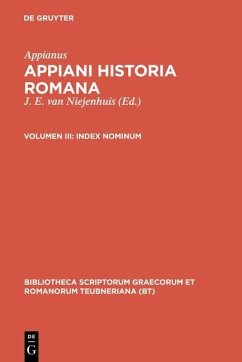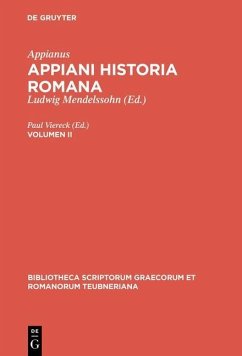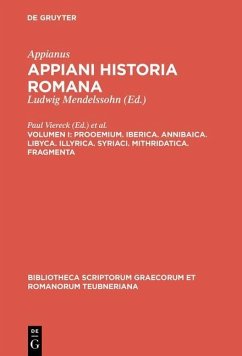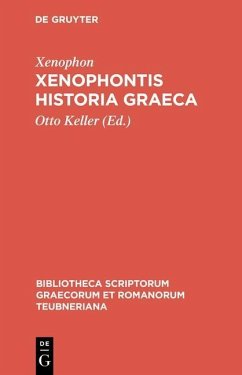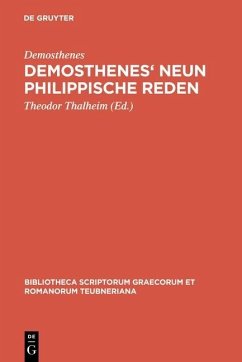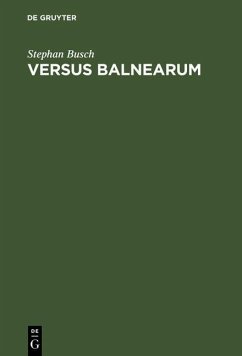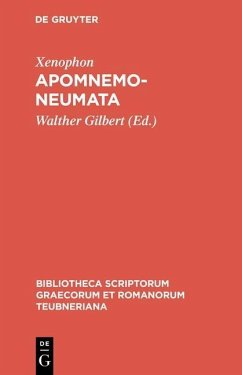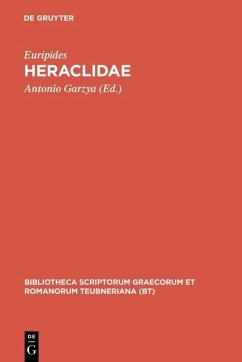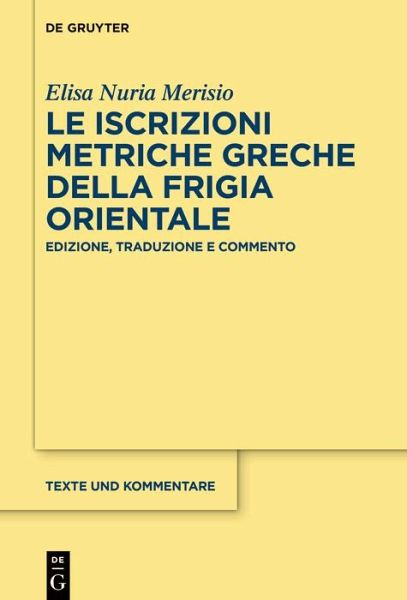
Le iscrizioni metriche greche della Frigia orientale (eBook, PDF)
Edizione, traduzione e commento
Versandkostenfrei!
Sofort per Download lieferbar
139,95 €
inkl. MwSt.
Weitere Ausgaben:

PAYBACK Punkte
0 °P sammeln!
This book presents an edition of Greek metrical inscriptions from eastern Phrygia (modern Turkey), accompanied by a translation and commentary. It is a corpus of ca. 100 funerary, honorary and votive epigrams from the 2nd- 5th c. CE. The commentary is centered on their linguistic, philological and literary features.It analyses several phenomena related to the late stage of Greek language development and to the spoken language. As regards the literary tradition, even though the Homeric poems are the primary models for most epigrams, the commentary highlights the occurrence of several terms and ...
This book presents an edition of Greek metrical inscriptions from eastern Phrygia (modern Turkey), accompanied by a translation and commentary. It is a corpus of ca. 100 funerary, honorary and votive epigrams from the 2nd- 5th c. CE. The commentary is centered on their linguistic, philological and literary features.
It analyses several phenomena related to the late stage of Greek language development and to the spoken language. As regards the literary tradition, even though the Homeric poems are the primary models for most epigrams, the commentary highlights the occurrence of several terms and expressions found in later (epic and non-epic) works, often reflecting a Christian background.
The book shows the relevance of the study of metrical inscriptions from Asia Minor as a means to enhance our knowledge of the spread of education and literary culture in the area even in the late Roman Empire. The inscriptions analyzed are not only invaluable linguistic documents, but also play an important role both as pioneering texts reflecting the emergence of a new literary style and as reliable and enduring testimonies to the cultural influence of the Greek literary tradition in places and periods very remote from its original context.
It analyses several phenomena related to the late stage of Greek language development and to the spoken language. As regards the literary tradition, even though the Homeric poems are the primary models for most epigrams, the commentary highlights the occurrence of several terms and expressions found in later (epic and non-epic) works, often reflecting a Christian background.
The book shows the relevance of the study of metrical inscriptions from Asia Minor as a means to enhance our knowledge of the spread of education and literary culture in the area even in the late Roman Empire. The inscriptions analyzed are not only invaluable linguistic documents, but also play an important role both as pioneering texts reflecting the emergence of a new literary style and as reliable and enduring testimonies to the cultural influence of the Greek literary tradition in places and periods very remote from its original context.
Dieser Download kann aus rechtlichen Gründen nur mit Rechnungsadresse in A, B, BG, CY, CZ, D, DK, EW, E, FIN, F, GR, HR, H, IRL, I, LT, L, LR, M, NL, PL, P, R, S, SLO, SK ausgeliefert werden.




